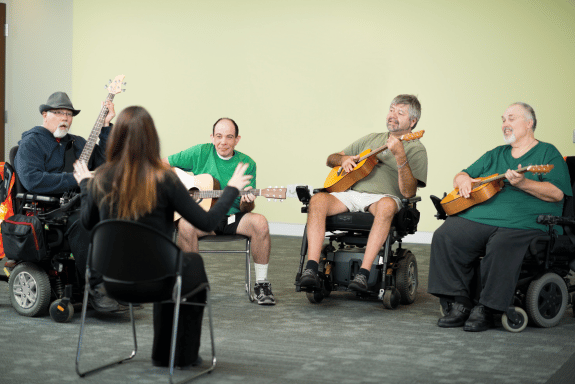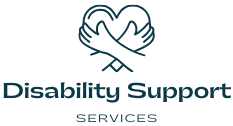Music Therapy in Australia
What We Do
At Disability Support Services, our Music Therapy program is designed to harness the power of music to bring positive change in the lives of individuals with disabilities. Guided by qualified music therapists, we use customized musical interventions to enhance emotional well-being, boost communication skills, and promote personal development. Whether it’s through individual or group sessions, we focus on creating a safe, uplifting environment where participants can grow, heal, and connect.
How This Service Helps You
Music Therapy offers incredible benefits for individuals with disabilities, such as improving emotional health, fostering social connections, and encouraging self-expression. It helps reduce anxiety, builds self-confidence, and enhances overall quality of life by providing a creative outlet tailored to your unique needs.
Our Services Include:
- Therapeutic Music Sessions: Customized sessions led by trained music therapists using instruments, vocal exercises, and rhythm-based activities to achieve therapeutic goals.
- Emotional and Behavioral Support: Provides a safe space for individuals to express emotions, reduce anxiety, and develop coping skills through music.
- Social Interaction and Communication Enhancement: Encourages social engagement, improves communication skills, and builds confidence through group music activities.

Send Us A Message
Give us chance to serve and bring magic to your brand.
NDIS Services In Victoria

These sessions are designed to meet the specific therapeutic needs of each individual. Using a variety of musical tools such as instruments, singing, and rhythm exercises, our trained therapists help participants achieve goals like improved emotional regulation, stress relief, and enhanced creativity.

Music Therapy provides a non-verbal outlet for expressing feelings, making it especially beneficial for individuals who struggle with traditional communication. Through tailored musical activities, participants can reduce anxiety, manage stress, and build healthier emotional responses.

Group music activities are perfect for fostering connections and building communication skills. Whether singing in a group or playing instruments together, these sessions encourage teamwork, improve self-confidence, and create a sense of belonging.
